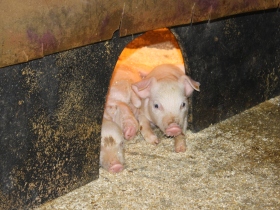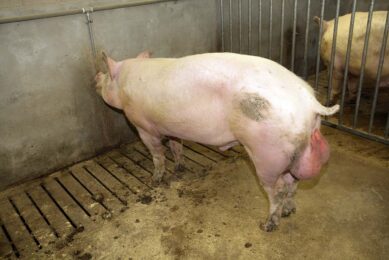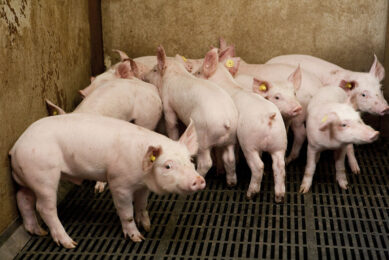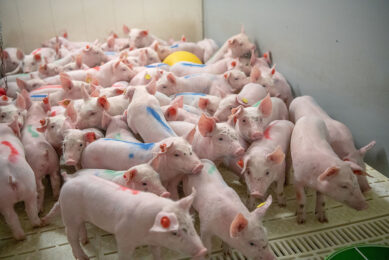Castration: Swiss scientist criticises isoflurane use

A scientist from the University of St Gallen, Switzerland has claimed that male piglet castration under isoflurane anaesthesia is ‘not justifiable’ under Swiss animal protection law.
The results of an expert report by Prof Dr Rainer J. Schweizer was presented this morning in Rheinau, Switzerland, in a press conference organised by animal welfare groups Swiss Animal Protection (SAP) and Swiss Veterinary Association for Animal Protection (SVAAP).
The outcome may influence the Swiss debate on male piglet castration, which has been heated for a couple of years. As from 2015, surgical castration will be fully banned in Switzerland and until that time, starting January 1, 2010, pain relief is mandatory.
ProSchwein
The Swiss expert group ProSchwein has for that reason focused on alternatives of surgical castration in 2008. The group came up with several alternatives, including boar fattening, the use of a vaccine to control the development of boar taint (manufactured by Pfizer Animal Health) or using isoflurane anaesthesia.
In practice, however, several wholesale retailers, like supermarket chain Migros, just as processor Micarna, have indicated to be hesitant against the vaccination method and entire boar fattening – and will hence only accept meat from physically castrated animals.
That outcome would imply that the percentage of farmers using other methods than ‘isoflurane’ would remain relatively low – and this development roused protests earlier this year among veterinarians and pig producers alike.
Objections
A summary of Prof Schweizer’s report reads: “Surgical piglet castration using isoflurane anaesthesia breaches the requirement to eliminate pain under Art. 16 Animal Protection Law. The requirement applies to each individual animal and does not permit any method of anaesthesia where 2-9% or up to 100,000 animals per year receive insufficient anaesthesia and are castrated in pain.”
He goes on, saying that “the ability of the method to be controlled is not guaranteed in practice.”
Examination
In addition, Schweizer says that the isoflurane method “is mainly introduced at the instigation of two large wholesale butchers at the pig breeding farms.” He goes on saying: “We request the Federal Council to examine the necessity for a transitional ruling and its development by a new article. In all events, breeders should not undertake any new investments.”
Click here to read Prof Schweizer’s summary.
Trial results
These arguments may put the debate in a different light again. Earlier this year, a manufacturer of isoflurane anaesthesising machines, claimed to have research results indicating that 97% of piglets are pain-free during castration.
Related websites:
• Migros
• Micarna
• University of St Gallen
• Pfizer Animal Health
• Swiss Animal Protection (SAP)











